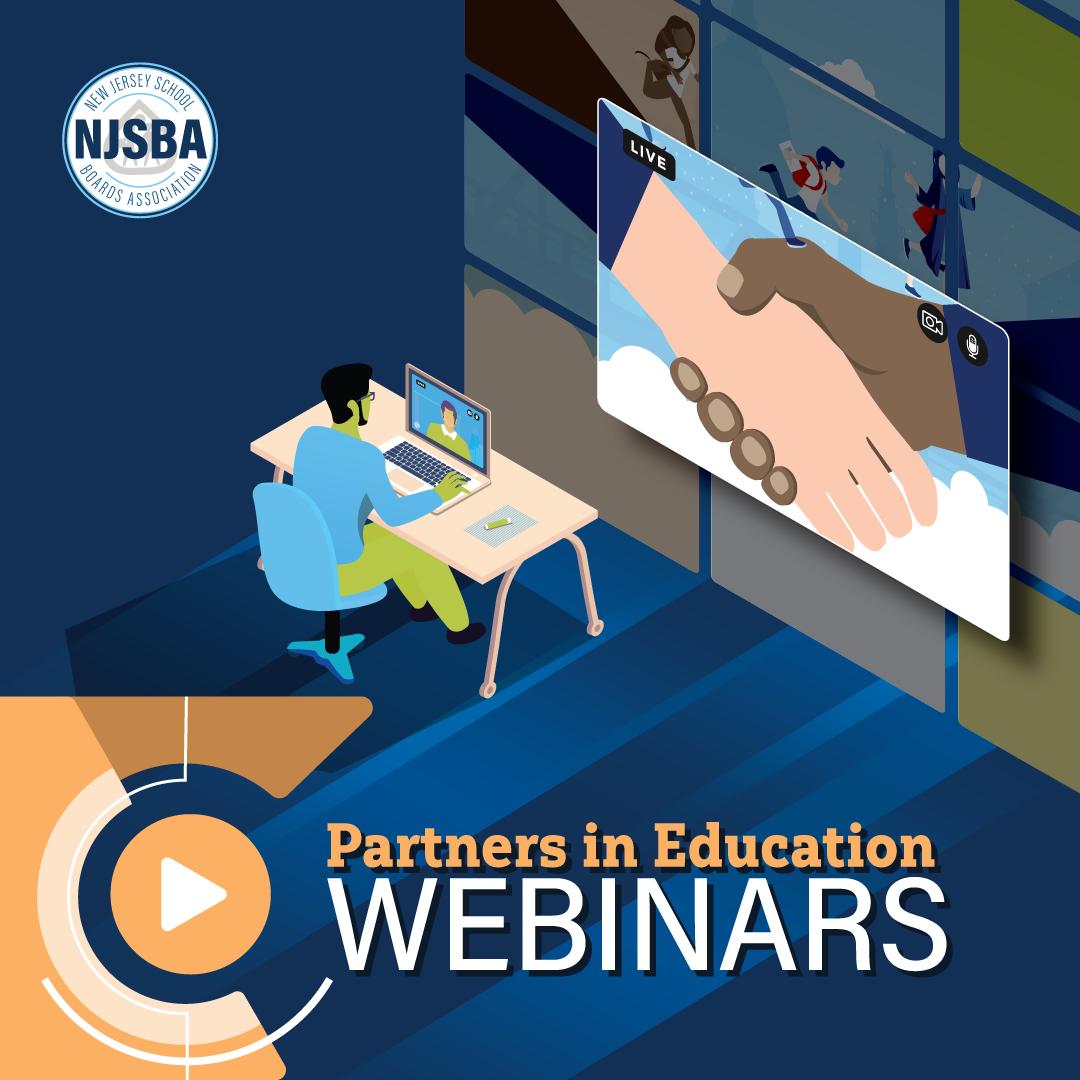The Senate Education Committee met this week and considered a full agenda of bills. Those bills – and several from other committees – are listed below.
Public hearings concerning the governor’s fiscal year 2026 proposed budget begin this week as well. The Assembly Budget Committee will meet in Trenton (State House Annex, 4th Floor, Committee Room 11) Wednesday, March 19, and Tuesday, March 25. The Senate Budget and Appropriations Committee will meet Wednesday, March 26, at the New Jersey Institute of Technology’s campus in Newark and virtually Thursday, April 10. Interested speakers must pre-register online for one of the hearings. Budget proposal documents, including the full Budget Detail, can be found on the Office of Management and Budget’s website.
Senate Education Committee
The Senate Education Committee met Monday, March 17, and, unless otherwise noted, approved the following bills:
Anti-Choking Devices S-908 would require public and nonpublic schools to ensure that at least one portable anti-choking device is made available in the cafeteria, school nurse’s office and any other similar location with appropriate identifying signage. The devices would be placed in an unlocked and easily accessible location during the school day and at any other time when a school-sponsored event is taking place and may only be used in schools provided they have been registered with the United States Food and Drug Administration. Each board of education and the governing board or chief administrator of a nonpublic school would be required to develop policies for the use of anti-choking devices by school nurses and school employees. The New Jersey Department of Education would reimburse public and nonpublic schools for the costs incurred to implement the provisions of this bill.
The New Jersey School Boards Association is monitoring the bill.
Cybersecurity Instruction and Loan Redemption Programs S-3222 would require school districts to incorporate instruction on cybersecurity in an appropriate place in the curriculum in grades nine through 12. The bill would also require the Office of the Secretary of Higher Education to develop cybersecurity model curricula for use by four-year institutions of higher education and county colleges in the state. Finally, the bill would create two student loan redemption programs for individuals seeking careers in cybersecurity-related roles. One of those programs would provide loan redemption funding to public school teachers of an approved cybersecurity-related subject matter.
In committee testimony, the NJSBA expressed concerns about the addition of a new instructional mandate and advocated for the bill to be amended, so that all provisions related to that mandate be omitted from the legislation. The NJSBA expressed support for the provisions requiring the development of model curricula and the loan redemption program.
Out-of-School Time Advisory Commission S-3457 would establish a New Jersey Out-of-School Time Advisory Commission. The duty of the commission would be to assess the state’s out-of-school time programs by reviewing state policy governing these programs alongside existing research and best practices and to make recommendations to increase the accountability and quality of before-school, after-school and summer programs. The commission would be comprised of 22 members, including one representative of the NJSBA.
The NJSBA supports the bill.
Safe Transportation for Students with Disabilities S-3858 would require school bus personnel members working with students with disabilities to call 911 in potential life-threatening emergencies and would require school buses transporting students with disabilities to be equipped with certain safety features. Under the bill, a school bus personnel member would be required to report a 911 call to the Office of Special Education in the NJDOE, and a board of education or a school bus contractor providing pupil transportation services under contract would need to maintain a record of such calls. Boards of education and school bus contractors would be required to ensure that certain training related to school bus safety and interacting with students with disabilities are provided to relevant school bus personnel members. Current law already requires drivers and school bus aides to complete a training program on interacting with students with disabilities. This bill expands that law to include any other individual who works, and is otherwise responsible for the safety of students, on a school bus transporting students with disabilities.
The bill also requires a school bus that transports one or more students with disabilities to be equipped with: 1) a video camera on the interior of the school bus to monitor student safety while the students are being transported; 2) a global positioning system that provides information about the location and speed of each school bus in real time; and 3) two-way communications equipment, which may include a cellular telephone.
In committee testimony, the NJSBA expressed its support for the provisions of the bill that would ensure all school bus personnel are properly trained to interact with students with disabilities and respond to emergency situations. However, the Association advocated for the bill to be amended to omit any reference to the need for installation of new equipment, citing previous fiscal analyses that suggested such a requirement would come at a high cost to school districts.
School Supervisor Mentorship Pilot Program S-3933 would establish a three-year School Supervisor Mentorship Pilot Program to strengthen the school leadership pipeline in schools throughout the state by supporting and developing novice supervisors through a one-year mentoring cycle. As defined in the bill, novice supervisor means any appropriately certified individual assigned with the responsibility for the direction and guidance of the work of teaching staff members and who is in the first year of employment in a supervisor role. The bill requires the commissioner of education to develop guidelines for the program and enter into a partnership with a nonprofit organization with expertise in providing professional learning and mentoring services to school leaders. The bill would appropriate $500,000 to support the program.
The NJSBA supports the bill. Its counterpart in the Assembly, A-5075, was approved by the Assembly Education Committee on March 10.
IEP Meeting Guidelines & Working Group S-3982 would require certain information to be provided to a parent at least two business days prior to an annual individualized education program team meeting and would establish a working group within the NJDOE. Pursuant to the bill, at least two days prior to an IEP meeting, a school must provide a student’s parent or guardian with a written statement of items to be discussed at the meeting, including 1) the student’s current levels of academic and functional performance, 2) a list of the names of any required IEP team members who are seeking to be excused from participation in the IEP team meeting accompanied by their input into programs and services for which they are responsible and 3) an invitation for the parent or guardian to provide input and feedback on proposed services and programs. The bill would also establish an IEP Improvement Working Group to provide recommendations to the NJDOE regarding methods to improve the development and implementation of IEPs and to ensure parental involvement in the process. The working group would include two school board members.
The NJSBA supports the bill.
Protecting Student Data S-4162 would amend current law, so that a waiver template or form developed by the NJDOE, a board of education or a board of trustees of a charter school for use in collecting student financial aid information is to require the student, parent/guardian or school counselor, as applicable, to provide only the student’s name, telephone number, email address, date and signature of the individual submitting the waiver. Under the bill, school districts and charter schools are prohibited from using or disclosing the waiver submitted under P.L.2023, c.295, or any personal information contained within the waiver, without the informed consent of the student or the student’s parent or guardian consistent with applicable federal and state-level protections of student educational records, including the federal Family Educational Rights and Privacy Act. P.L.2023, c.295 requires high school students to complete a financial aid application, or submit a waiver, as a prerequisite to earning a diploma.
The NJSBA supports the bill.
Health Care Benefits for Disabled Public Employees S-4223 would permit members of the Teachers’ Pension and Annuity Fund and Public Employees’ Retirement System, or long-term disability insurance recipients who are receiving disability insurance benefits, to be entitled to health care benefits under the School Employees’ Health Benefits Program and State Health Benefits Program. Such benefits are to be provided in the same manner as provided to retirees of the TPAF and PERS retirement systems who receive health insurance under the SEHBP and SHBP, except that such health care benefits are to be free and will not require employee contributions.
The NJSBA is monitoring the bill.
Voluntary Contributions for Public School Aid S-1778 was posted for “discussion only” and therefore did not receive a vote from the committee. The bill would allow taxpayers to indicate on their gross income tax return that a portion of their tax refund be deposited into the “School Aid Contribution Fund.” The Legislature would use the funds collected to supplement state school aid in addition to, and not in place of, the annual appropriation for state school aid.
The NJSBA supports the bill.
Public Education Innovation Fund S-3141 was posted for “discussion only” and therefore did not receive a vote from the committee. The bill would establish a Public Education Innovation Fund in the NJDOE and provide corporation business tax and gross income tax credits to businesses for making qualified education donations to the fund. The commissioner of education would award grants, through a competitive application process, from the fund to low-performing public schools in the state for the implementation of educational innovation programs. The bill defines “educational innovation program” as any program that implements innovative strategies to mitigate or eliminate one or more barriers to academic achievement at a low-performing public school. The total amount of tax credits approved under the bill would be limited to $5 million for each state fiscal year.
The NJSBA is monitoring the bill.
Senate Budget and Appropriations Committee
The Senate Budget and Appropriations Committee met Monday, March 17, and approved the following bill relevant to boards of education:
TPAF Reenrollment Changes A-1675/S-2078 extends the length of time a member of the teachers’ pension system (Teachers’ Pension and Annuity Fund, or TPAF) can discontinue their service and still maintain their membership in the system. Under current law, membership in the TPAF ceases if an individual discontinues service for more than two years. This bill extends the period of discontinuance to 10 years. The bill also extends the length of time a member who left service for certain qualifying reasons (e.g., due to a reduction in force) may return to service and includes among the qualifying reasons those who voluntarily left service with 10 or more years of service credit. Under current law, membership in the TPAF may continue if such a member returns to service within a period of 10 years from the date of discontinuance from service. This bill extends the period of discontinuance to 15 years. Members who return to service under the terms of this bill will be placed in the member’s pension tier at the time of their original termination of service.
The NJSBA is monitoring the bill. The legislation would have no direct impact on school district finances, as the state pays the employer share of TPAF costs on behalf of boards of education. The bill also explicitly states that there will be no additional contributions imposed on the reenrolled member or the member’s employee. The Assembly passed the bill in June.
Resolution Signed by the Governor
Ruby Bridges Walk to School Day AJR-159/SJR-109 (P.L.2025, JR-3), signed by Gov. Phil Murphy on Monday, March 17, designates Nov. 14 of each year as Ruby Bridges Walk to School Day in New Jersey.
To view the full text of any of the bills summarized above, please visit the New Jersey Legislature’s website.



